Hi so me and @PrezZF have decided to come together and do a little collab of a Timeline between the two of us. Sort of like the collabs between @Vidal and @Enigma-Conundrum, me and Prez have decided upon the POD and we have a rough outline of Presidents but for the most part, we're improvising. I have written the first chapter and Prez will write the next one. With that out of the way @PrezZF and I present you you...
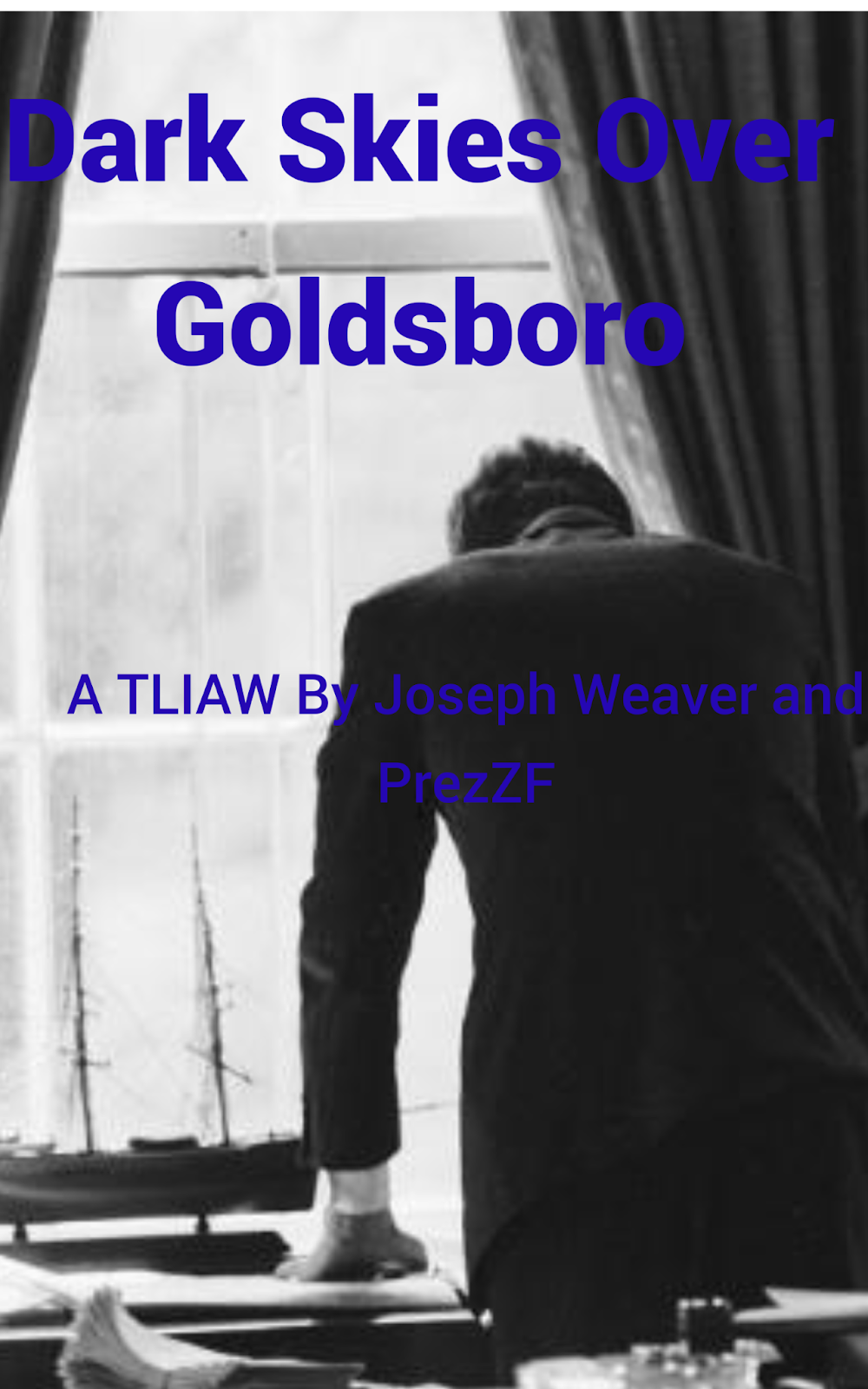
You are using an out of date browser. It may not display this or other websites correctly.
You should upgrade or use an alternative browser.
You should upgrade or use an alternative browser.
Dark Skies Over Goldsboro: A TLIAW
- Thread starter Joseph Weaver
- Start date
35. John F. Kennedy(D-MA)
35. John F. Kennedy(D-MA)
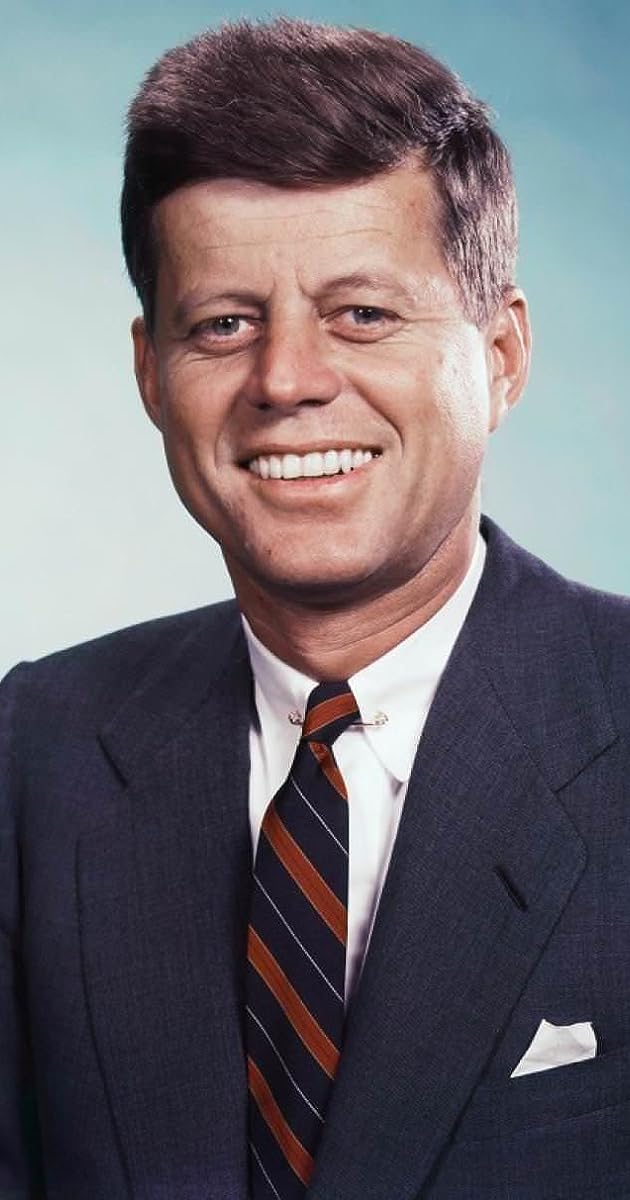
Jan. 20, 1961-Jan. 20, 1965
Jan. 20, 1961-Jan. 20, 1965
President Kennedy’s term started off horribly, just four days after he was inaugurated a B-52 carrying two 3.8-megaton Mark 39 nuclear bombs broke up in mid-air. One of the bombs went off.
Well over 33 thousand were injured while over 23 thousand died in the blast. Kennedy fearing the worst immediately declared DEFCON One. Thankfully after several tense and frantic phone calls between the White House and the Kremlin cooler heads prevailed and nuclear armagedoon had been adverted.
Now Kennedy was left with the disaster slammed into his lap, despite not wanting to take drastic action for fear of causing mass hysteria the overwhelming panic forced his hand. Martial law was declared in DC and federal troops were dispatched to Wayne County to aid the National Guard which Governor Sanford had already dispatched.
President Kennedy addressing the Goldsboro Disaster
President Kennedy’s approval ratings skyrocketed along with Governor Sanford’s. Kennedy used his high popularity to get a fair amount of legislation passed. Social Security benefits were expanded, Medicare was established, and education grants were expanded.
However, as time went on Kennedy’s approval rating slowly climbed down to the mid to high 50s though it would spike after his excellent handling of the Cuban Missile Crisis. Soon everyone forgot all about the Goldsboro Disaster.
Eventually in late 1961 citizens of Wayne County that were evacuated were given the go-ahead to return home.
Everything seemed okay… except it wasn’t.
In mid to late 1963 women who returned to Wayne County reported experiencing miscarriages, stillbirths, and genetic abnormalities in their children. Children as young as eleven died of cancer that was later linked to radiation exposure.
Federal troops and National Guardsmen were reportedly getting sick and dying of what was later found to be radiation poisoning. Scientists studied the Goldsboro area and learned more and more about radiation poisoning, the effects it caused, and the havoc it could wreak on the human body. Soon a report came out detailing the effects that radiation poisoning was having on the people of Wayne County and in late 1963 the people of Wayne County were once again evacuated and the Goldsboro Exclusion Zone was once again set up this time lasting well into the modern day.
Though Kennedy’s approval ratings took a hit the true death blow would come a bit later.
In early 1964 documents were leaked to the press that revealed the government understood the risk of return and yet still ordered the Exclusion Zone to be deemed safe. Not only that but once the true effects of radiation poisoning were discovered the administration tried to have it covered up and tried to stifle the report.
The fallout was immense. The public was outraged at Kennedy’s crass mismanagement of the situation and his approval ratings dropped.
Pretty soon the press began to look into any tiny juicy detail about the young President that they could find.
Soon Kenndy’s rather exotic private life was brought into the light as numerous affairs were revealed. The press also began to reexamine the Cuban Missile Crisis and what led up to it with some members of the press stating that it was President Kennedy's fault for getting the United States into the crisis in the first place. All in all the Goldsboro Disaster created a massive dark gloomy cloud over the Kennedy administration.
Things got even worse for the administration heading into the 1964 election when Vice President Lyndon B. Johnson announced that he wasn’t running for reelection and instead wanted to “retire” back home to Texas. Johnson probably left the ticket due to a combination of wanting to leave before his indiscretions were exposed as well as trying to distance himself from the now-unpopular Kennedy for a later Presidential run. President Kennedy fearing a primary challenge called up the still popular Goevnor Sanford to see if he was interested in the number two spot.
Sanford politely declined saying that he wanted to take a short break from politics. However, Kennedy did receive a primary challenge. But it did not come in the form of Governor Sanford instead the challenger was Alabama Senator J. Lester Hill.
Sen. J. Lister Hill(D-AL)
Kennedy quickly moved to kill Senator Hill’s bid by bringing up his arch-segregationism which worked. However soon after Kennedy was renominated at the 1964 DNC Hill stagged a walkout with several Southern Senators and Governors announcing that he would run third party in the upcoming election with the former Missippi Governor Ross Barnett as his running mate.
Kennedy named Tennesse Senator Albert Gore Sr. as his new running mate. Gore was one of the few Southerners who did not walk out with Hill.
For most of the campaign season, Kennedy trailed the Republican challenger in the polls. His only hope of being reelected was Arizona Senator and arch-conservative Barry Goldwater being nominated by the Republicans. However, a conveniently timed gaffe about lopping a nuclear bomb into the bathroom of the Kremlin along with one about privatizing the TVA and cutting Social Security ended his campaign.
After losing reelection Kennedy returned home to Massachusetts where he remained hidden away from the public until his death in 1974.
John F. Kennedy the man elected off of a promise of hope and change is now today regarded as an average to below-average President. His defenders will point out the good of his administration such as his handling of the Cuban Missile Crisis, his push for Civil Rights, and Medicare. His detractors point out his numerous affairs, his lukewarmness on Civil Rights, and most importantly the Goldsboro Disaster.
Kennedy's defenders when asked about Goldsboro will point out that knowledge of nuclear radiation was not quite as good or well-known as it is today and that Kennedy did the best he could with what he knew at the time. If you told someone about that back then they probably wouldn’t care. They would simply pull the lever for either the Republican Party ticket or the American Independent Party ticket.
Nowadays Kennedy is looked at by some historians such as Newt Gingrich as the man who kicked off the decades of instability that rocked both the nation and the world.
Last edited:
Given that he's banned and not kicked it's a permaban, and with no ban post I assume it was for being a sock.Hey does anyone know why @PrezZF got banned and how long it'll last for?
A sock?Given that he's banned and not kicked it's a permaban, and with no ban post I assume it was for being a sock.
An alternate account made by a banned userA sock?
Well shit looks like I'm I'm gonna have to continue this timeline on my own.An alternate account made by a banned user
Barry can't help but be Barry.Poor Barry, even when a President accidentaly nukes the US he can't get elected
Also NGL "At least I didn't accidentaly nuked the US" is An effettive slogan for an election
Maybe George Romney?Poor Barry, even when a President accidentaly nukes the US he can't get elected
Also NGL "At least I didn't accidentaly nuked the US" is An effettive slogan for an election
36. William Scranton(R-PA)
36. William Scranton(R-PA)
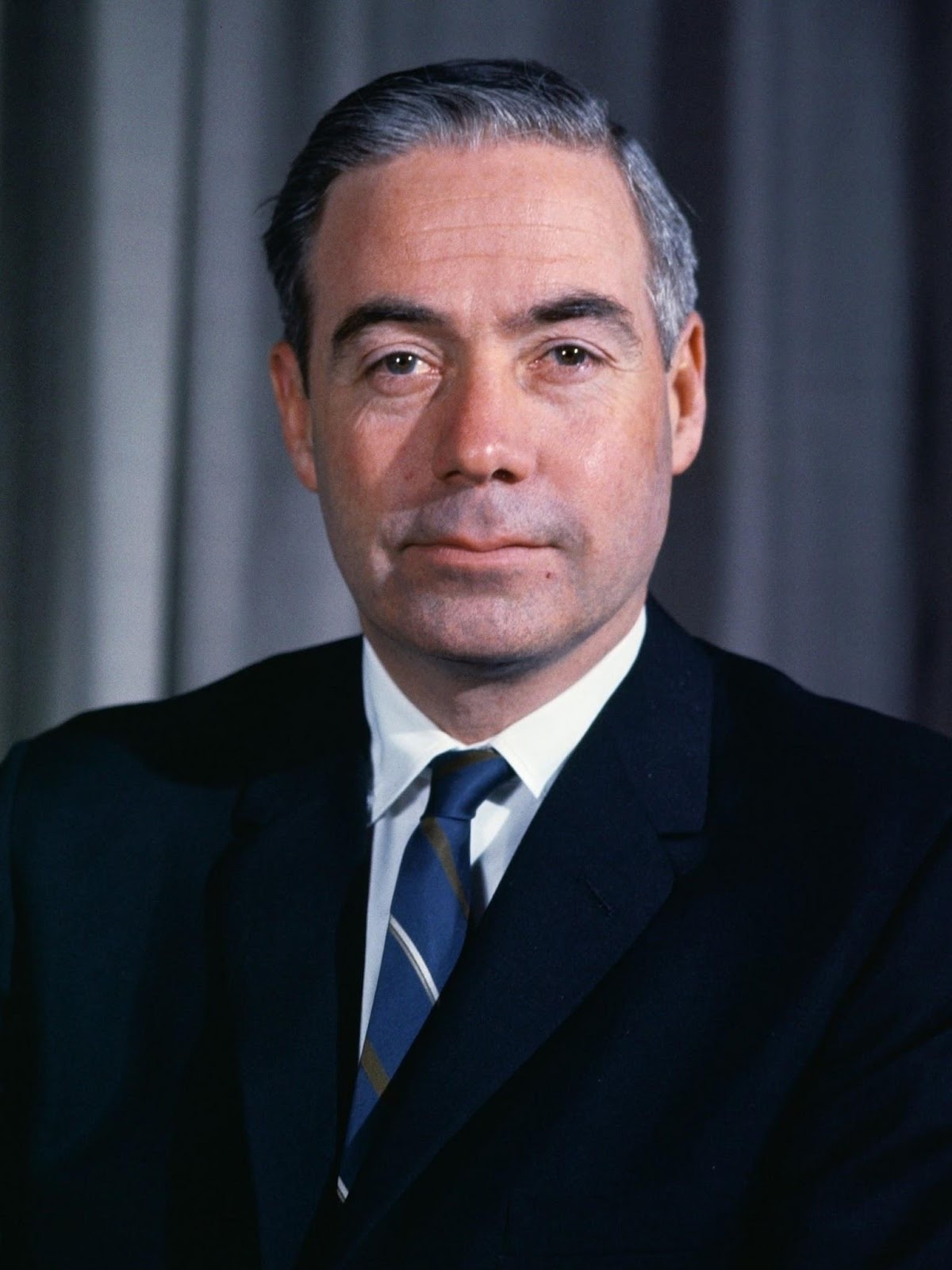
Jan. 20, 1965-Jan. 20, 1969
Jan. 20, 1965-Jan. 20, 1969
Governor Scranton at first didn’t want to run for President. However, that didn’t stop the Draft Scranton movement.
Many sought after an alternative to the conservative (and somewhat scary) Goldwater and the scandalous Rockefeller. Michigan Governor George Romney legally moved to remove himself from consideration{1} and Maine Senator Margret Chase Smith the first woman to campaign for a major party nomination couldn’t gain any traction (most likely due to her sex.)
The draft movement seemed to find their man in South Vietnam Ambassador Henry Cabot Lodge Jr. However, Lodge would kill all the rumors by announcing "I do not plan to go to the United States. I do not plan to leave Saigon. I do not intend to resign.{2}"
Finally when asked by the draft movement Scranton who at first wanted to say no said that he would consider it{3}. The Draft movement turned into the Draft Scranton Movement with the slogan “Draft Bill, Sure We Will!”
The Draft Scranton movement worked night and day to try and paint the Governor as the perfect man to challenge the now disgraced and scandalous Kennedy routinely playing Goldwater gaffs such as when he said he would lob a missile into the Kremlin’s men's room. Goldwater on March 7th said that “I’ve got it.” In regards to the New Hampshire Primary.
The primary was held under snow and Scranton won out despite not actively campaigning. Scranton received 30 percent followed by Goldwater with 25 percent, Rockefeller with 21 percent, Nixon with 17 percent, and Margaret Chase Smith with 3 percent. A handful of voters wrote in Lodge and Romney despite their refusal to be candidates.
After the victory Scranton officially entered and declared his candidacy.
Soon the race was on, the next primary Scranton and Goldwater clashed in was Illinois which Goldwater narrowly won with 36 percent with Scranont following behind with 33 percent and Smith in last with just 25 percent.
The next victory for Scranton was New Jersey. Rockefeller would withdraw and endorse Scranton soon afterward. Scranton would then go on to sweep both his home state of Pennsylvania and Massachusetts.
While Goldwater would win Indiana, Texas, Florida, and South Dakota Scranton would sweep all the other states aside from Ohio.
Despite the challenge from Goldwater and the conservatives Scranton was nominated on the first ballot.
1964 RNC results
The next step was choosing a running mate. Though he had a good list consisting of Walter Judd, Henry Cabot Lodge Jr, and Paul Fanion only one man stuck out to Scranton. That man was Congressman Gerald Ford{4}.
Although it took some convincing Ford agreed to be Scranton’s running mate.
With a three-way race between President Kennedy, Governor Scranton, and Senator Hill the polls always showed Scranton leading Kennedy. Despite Kennedy’s energetic and frantic campaigning Scranton had become President-Elect.
1964 Election
Gov. William Scranton(R-PA)/Rep. Gerald R. Ford(R-MI)-299 electoral votes
Pres. John F. Kennedy(D-MA)/Sen. Albert Gore(D-TN)-180 electoral votes
Sen. J. Lister Hill(AI-AL)/Fmr. Gov. Ross Barnett(AI-MS)-59 electoral votes
Scranton’s first order as President was to send aid to South Vietnam. While many wanted to get more involved Scranton did not and simply sent arms and aid to South Vietnam.
President Scranton’s first real order of business was Civil Rights.
Ever since the end of World War Two if not further back African Americans had been demanding their rights as citizens, and in the late 50s to early 60s they began to protest. And the protests only grew louder each year. During the campaign, Scranton had called upon the average Americans to act saying that “this fight is our fight” in regard to Civil Rights.
So with the help of Senate Minority Leader Everett Dirksen and Senate Majority Leader Mike Mansfeld introduced a pair of Civil Rights bills into Congress. Although they had bipartisan support they had their detractors, including those from Scranton’s own party such as old rival Barry Goldwater.
Senators Harry F. Byrd Jr. and J. Strom Thurmond led a 72-hour filibuster in order to kill the bill. They were not successful however and when the filibuster ended the bills passed with overwhelming bipartisan and President Scranton signed both the Civil Rights Act of 1965 and the Voting Rights Act of 1965 before the year was over.
The next big thing for Scranton was Medicaid. Though it was more of a Kennedy proposal it was something Scranton agreed with. It took some convincing, especially from conservative members of his own party but it passed in the House and Senate and was signed into law.
Of course, things took a nose dive in 1966 when South Vietnam fell.
It all started in 1963 when President Ngô Đình Diệm and the Personalist Labor Revolutionary Party of South Vietnam were deposed by a group of CIA-backed Army of the Republic of Vietnam officers who disagreed with Diệm's handling of the Buddhist crisis and the North Vietnamese and Viet Cong threat to South Vietnam in a coup. The coup started smoothly as loyalist leaders were captured after being caught off-guard and casualties were light. Then things went to hell as Diệm was captured and executed along with his brother and advisor Ngô Đình Nhu.
This caused a massive power struggle which alongside little to no military support from the United States allowed North Vietnam to swarm and overwhelm the south defeating them in October of 1966. The impact was immediate.
Hawks in both parties began to criticize Scranton for not sending troops to aid South Vietnam. Scranton tried to deflect and pointed out that it was more of the coup and Kennedy’s handling that led to South Vietnam’s fall. Even if it was somewhat truthful it didn’t matter as the Democrats won large majorities in the midterms, almost leaving Scranton as a sitting duck.
This along with conservative dissatisfaction with the President led to a primary challenge from rival Barry Goldwater. Senator Goldwater would defeat Scranton in 6 of the 13 primaries winning New Hampshire, Indiana, North Carolina, Nebraska, South Dakota, and California after some help from conservative actor and 1966 California gubernatorial candidate Ronald Reagan. Goldwater crushed the sitting President in three of the primaries.
Goldwater’s campaign however would end tragically after he was assassinated by Lee Harvey Oswald while giving a speech after winning the California primary{5}. Scranton would be renominated despite several conservative candidates challenging him such as Ronald Reagan.
Arizona Senator Barry Goldwater. After his death, Goldwater became a martyr to the conservative movement.
In his renomination speech, Scranton would give a touching eulogy to his old nemesis Barry Goldwater. The polling however would show Scranton tied with or trailing behind his Democratic challenger. In a bid to get some credit and boost his chances, Scranton would sign the Gun Control Act of 1968 into law.
The eruption this caused was severe, causing several conservatives to walk away and either support the Democratic ticket (ironic due to his liberal economic stances.) or the American Indipendent ticket of former Alabam Governor George Wallace and former Major General Edwin Walker.
In the end, Scranton was defeated by his Democratic challenger in a combination of the fall of South Vietnam, Riots across the country, and the Gun Control Act.
Scranton nowadays is seen as an average to above average President(especially when compared to his successor{6}.)
Authors Notes
1. This is the first big POD, IOTL both Scranton and Romney moved to legally remove themselves from consideration. Here it is just Romney.
2. This is what Lodge said IOTL after winning the New Hampshire primary via write-in. Here he says it before the primary removes him from consideration.
3. This is the second big POD.
4. Ford I believe was considered by both Nixon in 1968 and Goldwater in 1964. Here he is chosen by Scrantin to be his running mate and Vice President. What will that affect? You’ll see it later.
5. This is an analog to the RFK assassination just with Bobby swapped out for Barry and Sirhan Sirhan swapped out for good ole’ Oswald. Sorry, Barry.
6. Foreshadowing?!
Last edited:
37. Henry M. Jackson(D-WA)
37. Henry M. Jackson(D-WA)
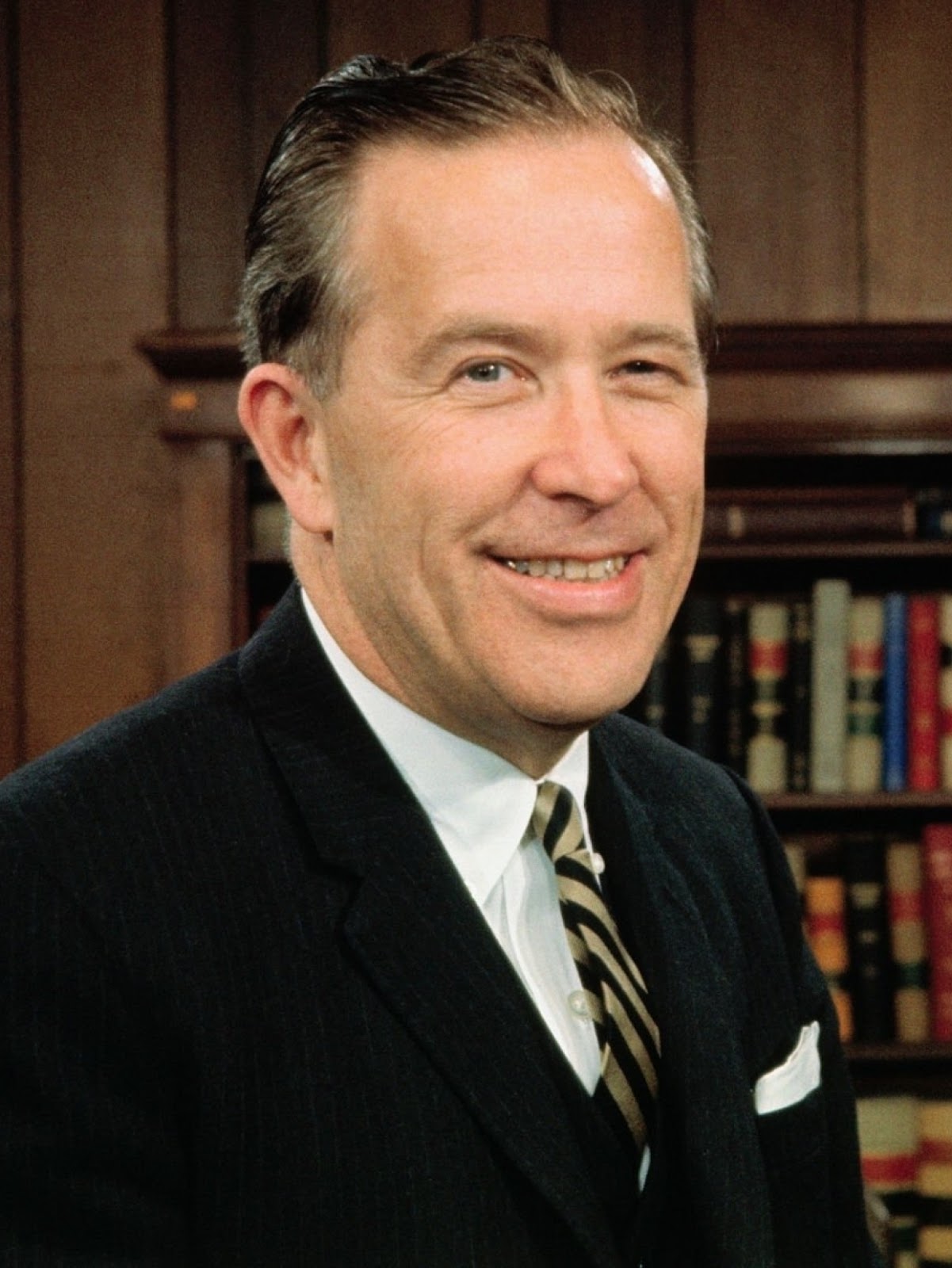
Jan. 20, 1969-Aug. 14, 1974
Jan. 20, 1969-Aug. 14, 1974
The Senator from Boeing(or whore for Boeing as he was called by enemies.) These are just some of the nicknames given to Henry Martin Jackson also known as Scoop Jackson. A nickname given to him but one of his sisters{1}.
It seemed odd when Scoop was nominated by the Democrats in 1968. After all 1968 at the start seemed like a battle between former Vice President Lyndon B. Johnson and the still moderately popular former governor Terry Sanford with little token opposition from Humphrey and Scoop.
Of course, Johnson’s ties to the still deeply unpopular Kennedy administration as well as both the Chichen Ranch Scandal and the Bobby Baker scandal forced him to withdraw leaving Sanford with little token opposition. The primary then looked to be the coronation of Sanford until a car accident weeks after the New Hampshire primary forced Sanford to withdraw.
Then Minnesota Senator Eugene McCarthy and California Governor Pat Brown jumped in. The three men split the vote in Wisconsin allowing Jackson who was running on a platform of economic New Deal liberalism, Cold War hawkishness, and Law and Order as well as opposition to bussing to win.
From there Scoop Jackson picked up momentum after momentum losing just two of the primaries he competed in, those being Illinois and California.
1968 Primary results
Jackson walked into the convention the frontrunner. McCarthy withdrew and endorsed Humphrey and Muskie jumped in as a “Stop Scoop” coalition began to form. However, with the opposition split Scoop was easily nominated on the first ballot.
1968 DNC results
Scoop then tapped Pennsylvania Governor Robert Casey as his running mate{2}. Jackson mostly attacked President Scranton for his failure to aid South Vietnam which had fallen in 1966. Scoop would allege that Scranton had made the country unsafe and unprepared for communist aggression, that he had wilted under the pressure of the red paws of the bear.
Scoop also attacked Scranton for the riots, chaos, and disorder caused by panic over the fall of South Vietnam as well as the assassinations of both Martin Luther King Jr. and Barry Goldwater pledged to restore Law and Order to the country. When Scranton attacked Jackson calling his Law and Order pledge a thinly veiled dog whistle Jackson pointed out his history of supporting Civil Rights.
Despite handily losing a debate to Scranton a month before the election which helped Scranton gain some momentum. With the general disorder and fear of encroachment from Communism and the promise that Scoop Jackson would protect them from both criminals and communism the public made their choice come election day.
1968 Election
Sen. Henry M. Jackson(D-MA)/Gov. Bob Casey Sr.(D-PA)-306 Electoral votes
Pres. William Scranton(R-PA)/Vice Pres. Gerald R. Ford(R-MI)-167 Electoral votes
Fmr. Gov. George C. Wallace(AI-AL)/Sen. J. Strom Thurmond(AI-SC)
President Jackson quickly got to work. He passed a repeal of the Taft-Hartley Act much to the furry of big business, Republicans, and Conservatives. He also began to hand out massive paychecks to the military.
Jackson also introduced several domestic programs such as the Older American Act which provided comprehensive services for older adults. It created the National Aging Network comprising the Administration on Aging, the Appalachian Development Act of 1969 which created jobs in the most impoverished regions of the country, and the Federal Food Stamp Act of 1969 which expanded the federal food stamp program.
Though a majority of bills such as the Economic Opportunity Act of 1969 which aimed to create the Office of Economic Opportunity (OEO) to oversee a variety of community-based antipoverty programs, the Elementary and Secondary Education Act of 1965 which was set to end a long-standing political taboo by providing significant federal aid to public education, and several housing bills where killed in Congress due to Conservative opposition.
Then in 1969, the Soviets on international television landed on the moon. Not only had the United States been beaten to Space they had now been defeated in the race to the moon. President Jackson went on live TV to say that the United States would work tooth and nail to build a moon colony and perhaps land a man on its sister planet Mars. The moon colony was immediately used for jokes for the likes of Johnny Carson leaving egg on Jackson’s face.
Something was needed to help give the President a boost. And in late 1969 something did indeed happen.
A ship carrying Cuban refugees was sunk. President Jackson quickly wagged its finger at Castro and announced new sanctions were being placed on Cuba. Castro however said that Cuba had nothing to do with the sinking and that the refugees were in fact, criminals.
Then in January of 1970, several assassination attempts were made on anti-castro exiles living in Miami, some were killed. The CIA and FBI come in citing National Security concerns and pretty soon the ties to the Cuban government are made clear.
March saw the start of several start of tit for tat firefights on the perimeter of Guantánamo Bay. Castro swore to the Kremlin and Soviet Premier Alexi Kosygin that these were all started by the Americans and asked for missiles to be deployed to Cuba again. Kosygin denied him though wanting to avoid a confrontation with the United States.
Over the months tensions escalated with more attacks on Guantánamo Bay and more rafts of refugees being blown up as well as a Cuban military plane bombing sugar cane plantations in Santo Domingo. All of this leading up to three weeks in June.
On June 3rd a military plane released a mayday signal with the pilot saying he was being attacked by Cuba, several pieces of the plane were found off the coast of Cuba. on June 7th a ship docked in Guantánamo Bay exploded with 77 being injured and 14 dying, the dots were quickly connected to Cuba with Castro once again saying he had nothing to do with it. But the straw that broke the camel's back came on June 20th when a civilian airliner carrying college students on their way to Guatemala was shot down over Cuba.
The public was outraged and soon Jackson was asking for a declaration of war from Congress. President Jackson got his declaration and war was declared on Cuba and Jackson's approval ratings shot up.
Despite having a defense pact with Cuba Premier Kosygin decides that Cuba is not worth starting armageddon over. He simply sends arms and aid to the Cubans and softly denounces the invasion.
The invasion of Cuba began in late June with the US landing troops on the beaches of Cuba. Despite fierce from the Cubans the United States was able to establish a beachhead to continue the invasion of the country.
The midterms came and went with the Democrats managing to expand their majorities in both the House and Senate. President Jackson with his nice approval ratings and decent majorities was then able to push through a large amount of his domestic agenda such as the Economic Opportunity Act, the Elementary and Secondary Education Act, and much more.
However, the war in Cuba proved much more difficult than expected with the troops facing heavy resistance. As the bodies began to stack up and the days dragged on into weeks and the weeks months and the months into years Jackson’s approval ratings began to slowly drop down while small protests slowly picked up steam.
All in all, things were looking great for Jackson heading into 1972.
The only prominent Republican who ran was retiring New York Governor Nelson Rockefeller however the right hated him with a fiery burning passion. But will little to no major conservative alternative and with Rocky being despised by the right Washington Governor Daniel J. Evans was nominated. Evans was a small C conservative, conservative on economic issues yet moderate to liberal on social issues.
Evans chose his fellow governor Spiro Agnew of Maryland. Of course, chaos struck when they had barely left the gate when one of Evans staffers Ted Bundy was caught in Utah with the severed head of a young college girl. It would soon come out that Bundy had committed several murders in Washington while working for Evans. Evans quickly left the ticket leaving Agnew as the Republican Presidential nominee.
Agnew chose former Governor Jon Volpe of Massachusetts as his running mate and continued on. Despite his terrible polling Agnew would go on the attack against Jackson and would start to slowly rise in the polls in the following months.
That was until a nasty October surprise revealed that Governor Agnew had accepted several bribes as both Governor of Maryland and Baltimore County Executive. Agnew was draped from the ticket and resigned as Governor leaving poor Volpe at the head of the ticket with no running mate.
Senator Harry F. Byrd Jr. of Virginia would jump into the race as a write-in candidate with Orval Fabus as his running mate. Volpe kept campaigning but it was too late to change the ballots so Agnew’s name appeared on the ballots come election day, Volpe also had no running mate but he did mostly appear with former Representatives Walter Judd and William Miller. Volpe was just glad he cleared the 100 electoral votes threshold.
1972 Election
Pres. Henry M. Jackson(D-WA)/Vice Pres. Bob Casey Sr.(D-PA)-371 Electoral votes
Fmr. Gov. Jon Volpe(As Spiro Agnew)(R-MA)/Various-103 Electoral votes
Sen. Harry F. Byrd Jr.(AI-VA)/Fmr. Gov. Orval Fabus(AI-AR)-63 Electoral votes
Even better news would come when US troops would finally breach Havana on November 14, 1972, sending Castro fleeing the nation in exile.
The US had done it…they had won. And although troops would have to stay behind to deal with an insurgency the public was happy and this was a great victory for the Jackson administration.
However, it would also be the start of the slow downfall of the administration.
It started in early 1973 when troops coming home from the war noticed a lack of any real evidence of Cubans planning for the Guantánamo Bay attacks. But most simply write it off as the Cubans either getting rid of the plans or Castro taking them with him.
That is except for two Washington Post reporters Bob Woodward and Carl Bernstein.
Woodward and Bernstein noticed a few discrepancies between the FBI reports of the assassination attempts on Cuban exiles and the Miami Police Department. They started to weave a web of deceit when an Air Force pilot came forward with quite a story.
Both the attacks on the military aircraft and the civilian airplane were faked. He told them all the dirty details such as how the Airplane filled with “college students” was just a repainted military aircraft that was blown up remotely over Cuba with nobody in it. When asked how he knew this he confessed that he was the man who flew the supposed “shot down” military aircraft over Cuba and gave Woodward and Bernstein all the details on that.
When all of this was published the public was shocked but was split on whether it was true or not with the Jackson administration and the military saying that it was all a lie.
That was until one brave soul named Daniel Ellsberg released the Northwoods papers. Military documents detailing the entire plan of the revised Operation Northwoods. Such as how the Guantánamo Bay attacks were carried out by friendly Cubans and CIA operatives in uniform. Or how an operative planted the bomb that destroyed the ship in the harbor.
Of course, it also had the signature of one Henry Martin Jackson.
To say the public was outraged was an understatement. Several in the Joint Chiefs of Staff as well as the CIA and the FBI resigned before being arrested. Calls for impeachment grew. An investigation committee was quickly formed as the walls closed in on Scoop Jackson.
Seeing no other alternative on August 14, 1974, after pardoning himself and several others involved in the Northwoods scandal President Jackson resigned leaving the whole mess in the lap of Vice President Casey.
In modern times Scoop Jackson is considered one of the worst President in modern times.
Authors Notes
1. The nickname was given to him because of a comic strip character he looked like.
2. Casey actually did run for governor in 1966. He lost the Primary to Sapp who would go on to lose the election however here Casey wins both the primary and the election. Becoming Governor way sooner.
Last edited:
38. Bob Casey Sr.(D-PA)
38. Bob Casey Sr. (D-PA)
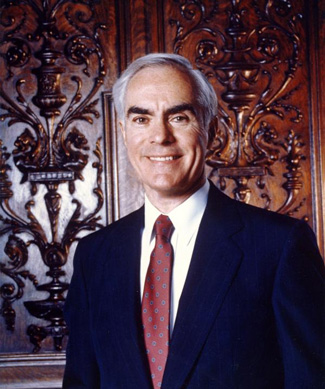
Aug. 14, 1974-Jan. 20, 1977
Aug. 14, 1974-Jan. 20, 1977
Bob Casey’s political rise began when he was elected governor of Pennsylvania amidst the Blue Wave of 1966. Then to the shock of several people including Casey himself, Scoop Jackson asked Casey if he would be his running mate for the 1986 election despite having only been Governor for a year or two, Casey would agree and the two would go on to defeat the incumbent President William Scranton.
Of course, Casey expected to simply be a domestic adviser to the President…and then Scoop Jacson resigned following the Northwoods Scandal leaving the whole mess in Casey’s lap.
With approval ratings as low as 40 percent and many wondering how much the new President knew about the scandal Casey looked to have a rough four years ahead of him. After giving a speech about healing as well as giving an apology despite having nothing to do with the scandal nor any knowledge about the scandal Casey saw his approvals rise up to 45 percent.
Of course, the first issue was filling several cabinet spots that had been left empty after resignations such as Secretary of State which was vacant following the resignation of Dean Rusk. The position was quickly filled by UN Ambassador Daniel Patrick Moynihan. The next spot that needed to be filled was the Vice Presidency.
There were several contenders to fill the role starting with the then-current Secretary of Health, Education, and Welfare and former Governor of California Pat Brown, Senate Majority Whip Hubert H. Humphrey however Humphrey declined when asked, Former Speaker of the House John W. McCormack however he too declined, and former Kentucky Governor and Senator Happy Chandler.
There were other options such as Florida Congressman Claude Pepper, FBI Director Robert F. Kennedy, California Congressman Jerry Brown, CIA Director Vernon A. Walters who replaced Jeane Kirkpatrick following her resignation, and Hawaii Senator Daniel Inouye. However none of them were chosen for one reason or another leaving the role to be offered to Pat Brown who accepted and was quickly nominated and confirmed with former Minnesota Senator Eugene McCarthy taking his place as Secretary of Health, Education, and Welfare.
The next several months were spent on investigations into the Northwoods Scandal with President Casey repeating over and over that he had no knowledge of the scandal nor any involvement in it.
With no evidence that he was lying the public and Congress moved on.
Casey also moved on with his big defining act. The Unborn Protection Act which banned abortions at the federal level with the exceptions of rape, incest, and the life of the mother. Casey signed the law in late 1974.
On foreign policy, Casey did an about-turn from the previous hawkish Jackson administration and began to pursue detente with the Soviet Union. Casey began Strategic Arms Limitation Talks with Soviet leader Leonid Brezhnev with the two signing the SALT 1 Treaty in late 1975.
Casey also began to reduce Military spending due to the Northwoods scandal bringing it down from the 65 percent that it reached under Jackson to 45 percent with the money going towards either Medicare and Medicaid, Social Security, and Education among other things.
Casey also began the withdrawal of American troops from Cuba bringing the last shipment of troops home in mid-1975. Allowing Castro to come back a beloved hero. Casey proved to be a breath of fresh air compared to Scoop Jackson though it would not be enough to save him from losing to his Republican challenger in 1976.
Today Casey is viewed as an average President being seen by many historians as the right man at the right time helping to steer the country following the devastating Northwoods scandal.
39. Gerald R. Ford(R-MI)
39. Gerald R. Ford(R-MI)
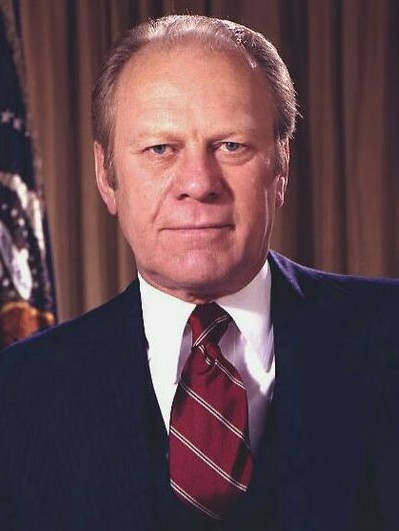
Jan. 20, 1977-Jan. 20, 1981
Jan. 20, 1977-Jan. 20, 1981
Gerald Rudloff Ford Jr. born Leslie King Jr. never wanted to be President…at least not at first.
His goal and dream was to be Speaker of the House. Of course, when searching for a running mate then-Governor William Scranton settled on Congressman Ford as a moderate conservative. Someone who all sides could accept.
It took quite a bit of convincing but Ford eventually agreed and the two would go on to defeat the now disgraced President Kennedy in the general election. Ford thought he would be a simple advisor much like how other Vice Presidents were.
However, Scranton gave Ford plenty of things to do while in office such as working alongside Dirksen, Mansfeld, and McCormack to get his civil rights bill passed.
Working alongside Scranton as Vice President started to change Ford’s mind about the Presidency. Seeing up close the power held by Scranton as President, Ford started to dream of being Scranton’s successor.
Unfortunately for them, South Vietnam fell in 1966, and then Scoop Jackson swept them out of the White House three years later. However Ford prepared, he waited and placed all his ducks in a row.
He didn’t run in 1972 instead letting Volpe, Evans, and Agnew take the fall but when Northwoodsgate came out and Scoop Jackson became the most hated man alive Ford saw a chance. As soon as Scoop Jackson resigned Ford began to plan, he went to his old boss asking if Scranton planned on running in 1976. Thankfully for Ford Scranton didn’t want to run again so he gave Ford the go-ahead.
Ford alongside his old boss Scranton announced his campaign for President in early 1976. With his popularity among Republicans as well as the backing of former President Scranton Ford easily swept the primaries only facing token opposition from the likes of perennial candidate Ronald Reagan and Kansas Senator Bob Dole.
When choosing a running mate Ford had choices on top of choices. There was Kansas Senator Bob Dole a youngish Conservative from the MidWest. There was Tennesee Senator Howard Baker a moderate who was the Senate Majority Leader. There was Conservative Governor Jack Kemp of New York a young man with a rising star in the Republican party and a former football star to boot.
However, Ford wanted someone like him. Someone who could be his successor. So he chose former UN Ambassador George Herbert Walker Bush.
The conservatives were unimpressed though New York Governor Jack Kemp happily gave a rousing nomination speech for Bush to rally the crowd around him. The conservatives were still unenthusiastic but decided to remain with the Republican ticket for now.
On the campaign trail, Ford stayed away from social issues and largely hit President Casey on the Northwoods Scandal and the rising inflation. President Casey however hit back saying that Ford’s economic policy would hurt the average American with his running mate sitting Minnesota Senator Hubert H. Humphrey chiming in that Ford’s plan would harm farmers and that he would be beholden to the conservatives on both economic and foreign policy.
The two tickets went back and forth over the campaign trail with Ford winning the debate despite making a gaff about Poland. On election day the people wanting change and feeling oddly nostalgic about the Scranton days pulled the lever for the former Vice President.
1976 Election
Fmr. Vice Pres. Gerald R. Ford(R-MI)/Fmr. Amb. George H. W. Bush(R-TX)-311 Electoral votes
Pres. Bob Casey Sr.(D-PA)/Sen. Hubert H. Humphrey(D-MN)-227 Electoral votes
Though the election was a lot closer than expected Ford had won. President Casey had graciously conceded. Gerald Rudloff Ford Jr. was now the 39th President of the United States.
Of course, Ford got to work as soon as he entered the White House. He repealed Scoop Jackson’s repeal of the Taft-Hartly Act. He passed a moderate 5% tax cut. And even began to make spending cuts to combat inflation and stagflation.
The biggest concern to President Ford was inflation which had been growing year by year since the Cuban war. To combat the rising inflation Ford sought to encourage people to reduce their spending. In October of 1977, Ford unveiled his new WIN (Whip Inflation Now) initiative.
The initiative encouraged people to reduce their spending, especially regarding gasoline. However, this was met with skepticism and snickers from the public. Nevertheless, Ford went back to the drawing board.
He began working with the new Federal Reserve Chairman Arthur Burns to clamp down on high interest rates. In theory, this would kill inflation and loosen things up for economic growth. In practice, all it did was drive interest rates through the roof with stagnation remaining.
In foreign policy, Ford had some successes. Such as the Panimal Canal.
In early 1978 Ford received reports from the CIA about a plan called “Huele a Quemado.” Which was based on the simple idea that if Panima couldn’t have the canal then neither could the Americans. Ford quickly acted sending both Secretary of State Henry Kissinger and Vice President Bush to negotiate with Omar Torrijos.
When the two came back to announce the treaty hawks in both parties cried to the heavens. Decrying that Ford was “giving away” a crucial U.S. asset. Congressional Conservatives such as Senator Dole formed committees such as the Committee to Save the Panama Canal in an attempt to defeat the treaties in the Senate. They were joined by whatever “Scoop Jackson” Democrats remained such as Junior Senator from Washington Paul Wolfowitz.
President Ford worked with Majority Leader Baker and used whatever political capital he had left to get the treaties through Congress. President Ford signed the Ford-Torrijos Treaties on March 7th, 1978. Congress ratified them soon after.
These along with the economic woes spelled disaster for the Republicans leading into the 1978 midterms. The Democrats expanded their majority in the House and retook the Senate.
As soon as the Democratic Majorities were sworn in they passed the Humphrey-Hawkins Act only for it to die on Ford’s desk.
Ford then took up healthcare, introducing a universal healthcare bill into Congress called the Gerald Ford Healthcare Act, or Fordcare for short. Fordcare looked to offer an employer mandate to offer private health insurance if employees volunteered to pay 25 percent of premiums, federalization of Medicaid for the poor with dependent minor children, merger of Medicare Parts A and B with the elimination of the Medicare Part B $5.30 monthly premium, and support for health maintenance organizations (HMOs){1}.
The bill was decried by Conservative Republicans with its most notable detractor being Senator Dole who said that the bill would cause the Government to run a huge deficit. It was also opposed by Southern Democrats such as Russell Long of Louisiana.
The bill passed in the House only to narrowly die in the Senate with the help of Bob Dole. Ford quickly created a compromise bill that would add catastrophic coverage to Medicare and extended Medicaid to the very poor without dependent children. Senator Kennedy decried the bill as being insufficient and Senators Dole and Long brought up budget concerns the Extended Medicare and Medicaid Act of 1979 narrowly died in the Senate.
Ford tried a third time this time with a more conservative bill that would provide employer mandate to provide catastrophic coverage with the addition of catastrophic coverage to Medicare. Though liberals such as Senator Ted Kennedy felt the bill was insouciant conservatives in both parties liked it and so the Catastrophic Coverage Act of 1979 was passed by Congress and signed into law by Ford.
Of course, social issues also dominated the Ford White House with Ford signing a repeal of the Unborn Protection Act which banned abortions at the federal level with the exceptions of rape, incest, and the life of the mother much to the chagrin of conservatives in both parties as well as Pro-Life Liberals such as former President Casey and FBI Director Robert Kennedy.
Then came the Equal Rights Amendment, The Equal Rights Amendment was running out of time for passage that spring so Congress extended with Ford signing it. Then it went to the states Despite organized conservative protests and vigorous campaigns from the likes of First Lady Betty Ford (alongside her supportive husband Gerry), Vice President Bush, Former Secretary of State and former Vice President Richard Nixon, and former President Scranton pushed it over the hump in Illinois with it soon being ratified in South Carolina thanks to the surprising help of infamous Senator J. Strom Thurmond{2}. And Louisiana.
However, a handful of states had rescinded their ratification, leaving the amendment an unanswered constitutional question. Without them, it would be 33 and not the 38 needed for the amendment to be ratified. Thankfully in the fall of 1979, the Supreme Court heard the case ERA V. North Dakota which ruled that the only valid way to rescind ratification was to simply pass a second amendment in the form of the 18th and 21st.
And thus the ERA was finally ratified into the constitution with the President and First Lady throwing a huge celebration party in the White House.
Though the good times would not last with the final nail in the coffin coming from Iran.
the Shah of Iran had been a reliable U.S. ally since the 1953 Iranian coup d'état. During the years after the coup, the U.S. lavished aid on Iran, while Iran served as a dependable source of oil exports. Ford, Kissinger, and Rumsfeld saw Iran as a key Cold War ally, not only for the oil it produced but also because of its influence in OPEC and its strategic position between the Soviet Union and the Persian Gulf.
Iranian Shah Mohammad Reza Pahlavi
However, discontent had been brewing in Iran with the Iranian Revolution breaking out in 1978 against the Shah's rule. Secretary of State Henry Kissinger and National Security Advisor Alexander Haig both told the Shah that he should crack down on dissent. While Secretary Rumsfeld argued that the Shah should institute a series of reforms to appease the voices of discontent. The mixed messaging from the Ford administration left the Shah confused and indecisive.
The Shah would soon go into exile, leaving a caretaker government in control. In February of 1979, popular religious leader Ruhollah Khomeini returned from exile to popular acclaim.
As the unrest continued, Ford allowed Pahlavi into the United States for medical treatment. Though Ford was hesitant at first Kissinger pressured him to allow Pahlavi into the country for medical treatment with the support of both Haig and Rumsfeld. This caused the unrest in Iran to boil over.
In November 1979, shortly after Pahlavi was allowed to enter the U.S., a group of Iranians stormed the U.S. embassy in Tehran and took 66 American captives, kicking off the Iran Hostage Crisis.
Immediately the Ford administration would kick into high gear with Kissinger, Bush, and Nixon going to negotiate with the Iranians. The one thing they wanted…was for Pahlavi to be returned from the United States.
Ford refused and the negotiations stagnated. With the country caught in a standstill, Ford delivered a speech in February of 1980. This only made things worse however when Ford made a gaffe that eluded to the idea of using nuclear weapons against Iran. Immediately Iran cut off all remaining oil exports to America sending the economy reeling into a nasty recession. The worst one since the great depression. Ford, Nixon, Kissinger, and Bush quickly hurried to let the Iranians know that Ford did not mean what he said in order to keep the hostages alive.
Months upon months of negotiations paid off when the hostages were finally released…following the inauguration of Ford’s successor.
Ford successfully fended off challenges from Conservative Congressman such as Phil Crane. Ford and Bush were renominated and marched into certain doom in November of 1980.
In modern times Ford is seen as an average President overall.
40. Robert F. Kennedy(D-MA)
40. Robert F. Kennedy(D-MA)
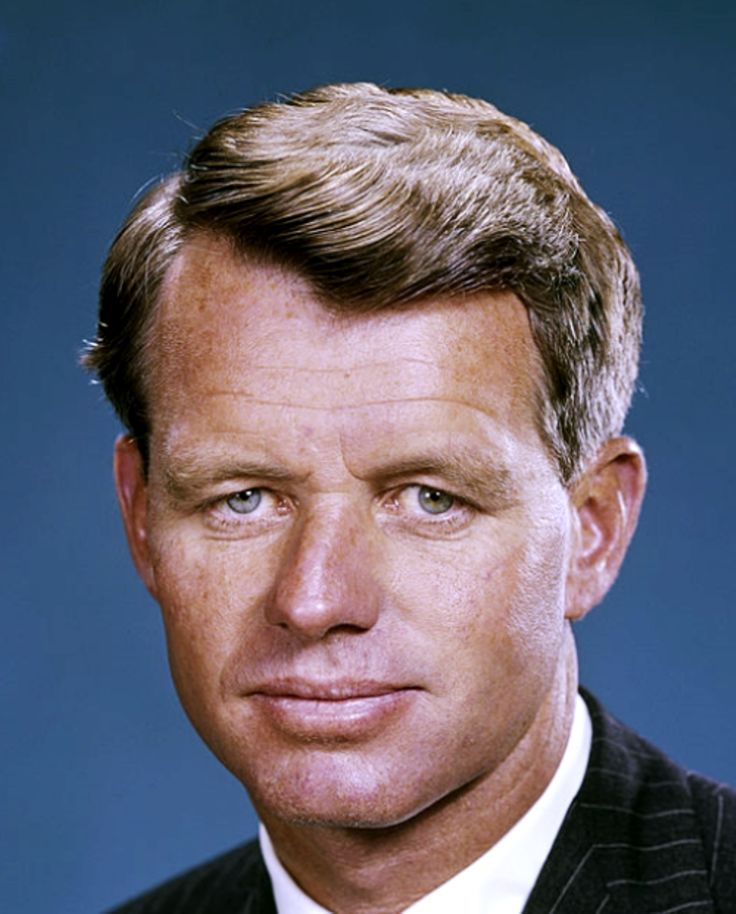
Jan. 20, 1981-Sep. 24, 1986
Jan. 20, 1981-Sep. 24, 1986
Robert F. Kennedy also known as Bobby Kennedy, Bobby K, etc. started his political career as the Attorney General for his brother Jack.
Bobby diligently worked as an advisor to his elder brother. Bobby worked to resolve the Ole Miss situation (though he failed). But when Goldsboro blew up in his brother’s face and Bill Scranton swept him out of office Bobby was out of a job.
And if he was going to go anywhere in politics he needed to find something that could distance himself from his brother’s administration. However, where could he go? He couldn’t win a primary or a general election, and there lay the problem. Where was Bobby Kennedy to go?
The answer came in the summer of 1965.
On June 21st, 1965 long-time FBI Director J. Edgar Hoover got into a very, very nasty car accident. Hoover didn’t quite make it.
Bobby saw an opportunity.
Not even a minute after Hoover was in the dirt he went to President Scranton and asked to be appointed the new FBI Director. Scranton obliged figuring it would keep Bobby out of his hair. While the agents grumbled they obliged and Bobby quickly found his power base.
Bobby quickly built his power base around him enriching himself in the shadiness of the FBI. He quickly gathered up whatever political dirt on potential enemies he could find. Of course, Bobby still had to be slick, such as when Scoop Jackson brought to him the unveiled the Northwoods plan.
Bobby already knew about Operation Northwoods from his time in his brother's cabinet and seeing the iceberg ahead he quickly looked for a way out. He found one when his brother Teddy got into a car accident that left him needing help to recover for a while.
Bobby quickly took the opportunity and resigned pointing out his brother’s injury resulting from his car accident. He returned to Hyannis Point and watched from a safe distance as Scoop’s administration crumbled to ash in the resulting calamity. In the fallout following Scoop Jackson’s resignation as well as the resignation of the FBI Director with his brother having largely recovered from his car accident Bobby announced his return to “clean up” the department.
The new President Bob Casey would gleefully appoint him to his old job seeing him as a safe face the whole country could get behind. Of course, nothing truly changed with Bobby back in charge, the wiretapping still ran rampant as did the spying and dirt gathering on potential political enemies but it didn’t seem that way so nobody was none the wiser.
When Ford beat Casey to become President he saw no reason to replace Bobby who had admittedly done a good job at chasing down criminals and putting them away so he left Bobby to his own as FBI Director.
This would later prove to be a huge mistake as in early 1979 Bobby Kennedy announced his intention to run for the 1980 Democratic Nomination for President joining other heavyweights such as Senator Morris K. Udall from Arizona, Governor Jerry Brown of California, and New York Governor Hugh Carey. Kennedy however would not be deterred and instead moved to take down his opponents one by one.
Using the connections he had built up during his time as FBI Director Kennedy secretly released medical files that revealed Senator Udall was hiding his Parkinson's diagnosis. The effect was immediate with Senator Udall dropping in the polls and withdrawing after Iowa. Kennedy simply let Carey bury himself with his flipping between bouts of energy and palpable depression and boorishness on the campaign trail as well as the use of targeted attack ads on Carey in New Hampshire.
Kennedy carried New Hampshire causing Carey to withdraw and endorse him leaving the only two serious opponents Brown and Askew. Kennedy would sweep a majority of the primaries from there and would easily sow up the nomination.
1980 Primary results
At the convention social liberals concerned by Kennedy’s opposition to abortion and gay rights sought a replacement for Kennedy. However, their attempt failed and Kennedy was nominated overwhelmingly on the first ballot.
1980 DNC Results
To balance the ticket both regionally and Ideologically Kennedy chose George Senator Jimmy Carter to be his running mate.
While many liberals were upset by Kennedy’s seemingly strong social conservatism (mostly his stances on abortion and gay rights). The DNC ignored Kennedy’s rougher edges in favor of the polling that showed him defeating Ford (surprising to some considering his obvious ties to his brother).
Things got even worse for the sinking Republican ticket when North Carolina Senator and arch-conservative Jesse Helms stagged a walkout among conservative Republicans at the RNC following the easy renomination of President Ford. Helms announced his intention to run as an independent with Congressman Guy Vander Jagt as his running mate.
Kennedy largely ignored the third party ticket instead focusing on his main opponent Ford whom he repeatedly hit with the worsening inflation, deep recession, and poor handling of the Iran-Hostage Crisis. While Ford tried to trade blows back it only led to Kennedy coming out on top each time.
Kennedy campaigned in the Northeast and the Mid West largely leaving the South to his running mate (Carter’s job was to try and keep as many Southern states as he could to vote Democratic). While surrogates such as Governor Brown campaigned in the Pacific.
As election day neared closer and closer it seemed that time did indeed heal all wounds as the public voted for their second Kennedy. Perhaps he would be better than his brother? The public hoped and thought.
1980 Election
FBI Director Robert F. Kennedy(D-MA)/Sen. Jimmy Carter(D-GA)-341 Electoral votes
Pres. Gerald R. Ford(R-MI)/Vice Pres. George H.W. Bush(R-TX)-138 Electoral votes
Sen. Jesse Helms(IND-NC)/Rep. Guy Vander Jagt(IND-MI)-59 Electoral votes
On January 20th, 1981 just 20 years following his brother’s inauguration Robert Francis Kennedy became the 40th President of the United States.
Kennedy quickly got to work. Working with Congress he crafted a massive 358 million dollar stimulus bill which passed easily. Kennedy got his first Supreme Court nomination when Ed Muskie retired in 1981. Kennedy’s first and only choice was former Secretary of the Interior under his brother Stewart Udall, Udall easily breezed through the process and was confirmed.
Kennedy also signed the Personal Responsibility and Work Act of 1981 which replaced Aid to Families with Dependent Children (AFDC) with the Temporary Assistance for Needy Families (TANF) program much to the chagrin of the more liberal members of Congress (including his younger brother Teddy).
Kennedy also passed a middle and lower-class tax cut. Of course, the biggest achievement for Kennedy was the Health Insurance Portability and Accountability Act (HIPAA) or Kennedycare as some liked to call it.
The bill prohibited healthcare providers and businesses called covered entities from disclosing protected information to anyone other than a patient and the patient's authorized representatives without their consent. The bill also protected health insurance coverage for workers and their families when they change or lose their jobs. And introduced two new major Federal healthcare insurance programs, Part C of Medicare and the State Children's Health Insurance Program, or SCHIP{1}.
The law was signed into law in March of 1982. In 1983 Kennedy got to appoint his second and final justice to the court when Bryon White stepped down. Of course, Kennedy wanted to replace White with a pro-life Democrat. His first choice was Secretary of State, Sargent Shriver.
Shriver’s nomination caused an uproar from the more liberal pro-choice side of the Democratic party which included New York Senator Elizabeth Holtzman who filibustered Shriver’s nomination until Shriver rescinded. Kennedy reluctantly nominated longtime Congresswoman Shirley Chisholm. Chisholm was easily confirmed to the court in September.
Come 1984 the economy had slowly but surely recovered from the recession and inflation was dealt with. Kennedy and Carter were both easily renominated by the Democrats with little to no challengers, while the Republican side quickly turned into a slugfest.
The two heavy hitters were former Vice President George Bush and Kansas Senator Bob Dole with former Governor Jack Kemp and Senator Howard Baker usually having decent showings coming in second or third. Vice President Bush eventually managed to win out over Senator Dole in what was a contentious primary.
Bush tapped Senator Baker to be his running mate.
Kennedy hit Bush over and over again on his ties to the still deeply unpopular Ford administration painting Bush as an even worse disaster in waiting. Bush of course tried to hit back by attacking Kennedycare only for Kennedy to point out in debates and stump speeches that Ford proposed his own healthcare reform plan when he was President and Bush never said anything. When Bush tried to attack the stimulus passed in early 1981 Kennedy hit back painting Bush as an elitist who didn’t care that the average American was suffering.
With the economy doing well and recovering Kennedy was reelected over Bush.
1984 Election
Pres. Robert F. Kennedy(D-MA)/Vice Pres. Jimmy Carter(D-GA)-393 Electoral votes
Fmr. Vice Pres. George H.W. Bush(R-TX)/Sen. Howard Baker(R-TN)-145 Electoral votes
Bobby Kennedy barely lifted his hand off the bible when a border dispute between Argentina and Brazil nearly kicked off a war between the two. Luckily Kennedy stepped in and mediated the dispute to avoid bloodshed.
In March of that same year, Kennedy met with General Secretary Gromyko to negotiate the SALT II treaty which was signed and ratified in the summer. Things were looking quite good for Kennedy…that was until a very dark secret was uncovered.
In February of 1986, a Fairchild C-123 Provider was shot down over Nicaragua. The cargo the plane was carrying was carrying 60 collapsible AK-47 rifles, 50,000 AK-47 rifle cartridges, several dozen RPG-7 grenade launchers, and 150 pairs of jungle boots.
A Fairchild C-123 Provider Circa 1971
The “kicker” Eugene Hasenfus also the only survivor having parachuted to safety was captured by the Nicaraguan government and interrogated. Hasenfus confessed to smuggling weapons into the country and was sentenced to 30 years in prison by a Nicaraguan court. Hasenfus was released at the behest of President Kennedy and others investigating Iran-Contra in exchange for Sandinista soldiers captured by the Contras.
Though there was no direct evidence linking Kennedy to the arms sales it still damaged him. However, the worst was yet to come…
In the spring of that same year, prominent Texax politician Ben Barnes came forward to the New York Times with a bombshell story. Barnes confessed to unwillingly and unknowingly aiding the Kennedy camp in keeping the hostages trapped in Iran so he could win the 1980 election against Gerald Ford.
Barnes told about how in the summer of 1980, he accompanied his mentor and one-time business partner, former Texas governor John Connally(and Secretary of Defense under RFK){2}, on a trip to the Middle East during which Connally asked Arab leaders to communicate to Iranian officials that they should not release the hostages before Election Day and if they waited, Kennedy would offer them a better deal.
Almost immediately Kennedy’s approval ratings plummeted. Connally resigned as soon as the scandal was published. And soon after the floodgates opened and all the skeletons came out.
Stories of Kennedy’s rampant use and abuse of the FBI to spy on political opponents hit the airwaves. Stories of how Kennedy knew of the Northwoods scandal before it even started to come out. Facing impeachment and very likely removal from office Kennedy resigned in disgrace on September 24th, 1986.
Robert is seen as a below-average to awful President by historians. His defenders point out his achievements such as Kennedycare, welfare reform, and the great economy while his detractors point towards the Iran Hostage scandal, his abuse of the FBI to spy on opponents, and the massive damage he did to both the office of President and the country as a whole.
Authors Notes
1. This was a proposal by Bill Clinton in the '90s.
2. John Connally stays a Democrat ITTL.
Last edited:
After reading Blue Skies in Camelot this was slightly amusing given that in that timeline it's Udall's decision to not run for re-election that allowed for RFK to win the 1980 election.Using the connections he had built up during his time as FBI Director Kennedy secretly released medical files that revealed Senator Udall was hiding his Parkinson's diagnosis.
40. Robert F. Kennedy(D-MA)

Jan. 20, 1981-Sep. 24, 1986
Robert F. Kennedy also known as Bobby Kennedy, Bobby K, etc. started his political career as the Attorney General for his brother Jack.
Bobby diligently worked as an advisor to his elder brother. Bobby worked to resolve the Ole Miss situation (though he failed). But when Goldsboro blew up in his brother’s face and Bill Scranton swept him out of office Bobby was out of a job.
And if he was going to go anywhere in politics he needed to find something that could distance himself from his brother’s administration. However, where could he go? He couldn’t win a primary or a general election, and there lay the problem. Where was Bobby Kennedy to go?
The answer came in the summer of 1965.
On June 21st, 1965 long-time FBI Director J. Edgar Hoover got into a very, very nasty car accident. Hoover didn’t quite make it.
Bobby saw an opportunity.
Not even a minute after Hoover was in the dirt he went to President Scranton and asked to be appointed the new FBI Director. Scranton obliged figuring it would keep Bobby out of his hair. While the agents grumbled they obliged and Bobby quickly found his power base.
Bobby quickly built his power base around him enriching himself in the shadiness of the FBI. He quickly gathered up whatever political dirt on potential enemies he could find. Of course, Bobby still had to be slick, such as when Scoop Jackson brought to him the unveiled the Northwoods plan.
Bobby already knew about Operation Northwoods from his time in his brother's cabinet and seeing the iceberg ahead he quickly looked for a way out. He found one when his brother Teddy got into a car accident that left him needing help to recover for a while.
Bobby quickly took the opportunity and resigned pointing out his brother’s injury resulting from his car accident. He returned to Hyannis Point and watched from a safe distance as Scoop’s administration crumbled to ash in the resulting calamity. In the fallout following Scoop Jackson’s resignation as well as the resignation of the FBI Director with his brother having largely recovered from his car accident Bobby announced his return to “clean up” the department.
The new President Bob Casey would gleefully appoint him to his old job seeing him as a safe face the whole country could get behind. Of course, nothing truly changed with Bobby back in charge, the wiretapping still ran rampant as did the spying and dirt gathering on potential political enemies but it didn’t seem that way so nobody was none the wiser.
When Ford beat Casey to become President he saw no reason to replace Bobby who had admittedly done a good job at chasing down criminals and putting them away so he left Bobby to his own as FBI Director.
This would later prove to be a huge mistake as in early 1979 Bobby Kennedy announced his intention to run for the 1980 Democratic Nomination for President joining other heavyweights such as Senator Morris K. Udall from Arizona, Governor Jerry Brown of California, and New York Governor Hugh Carey. Kennedy however would not be deterred and instead moved to take down his opponents one by one.
Using the connections he had built up during his time as FBI Director Kennedy secretly released medical files that revealed Senator Udall was hiding his Parkinson's diagnosis. The effect was immediate with Senator Udall dropping in the polls and withdrawing after Iowa. Kennedy simply let Carey bury himself with his flipping between bouts of energy and palpable depression and boorishness on the campaign trail as well as the use of targeted attack ads on Carey in New Hampshire.
Kennedy carried New Hampshire causing Carey to withdraw and endorse him leaving the only two serious opponents Brown and Askew. Kennedy would sweep a majority of the primaries from there and would easily sow up the nomination.
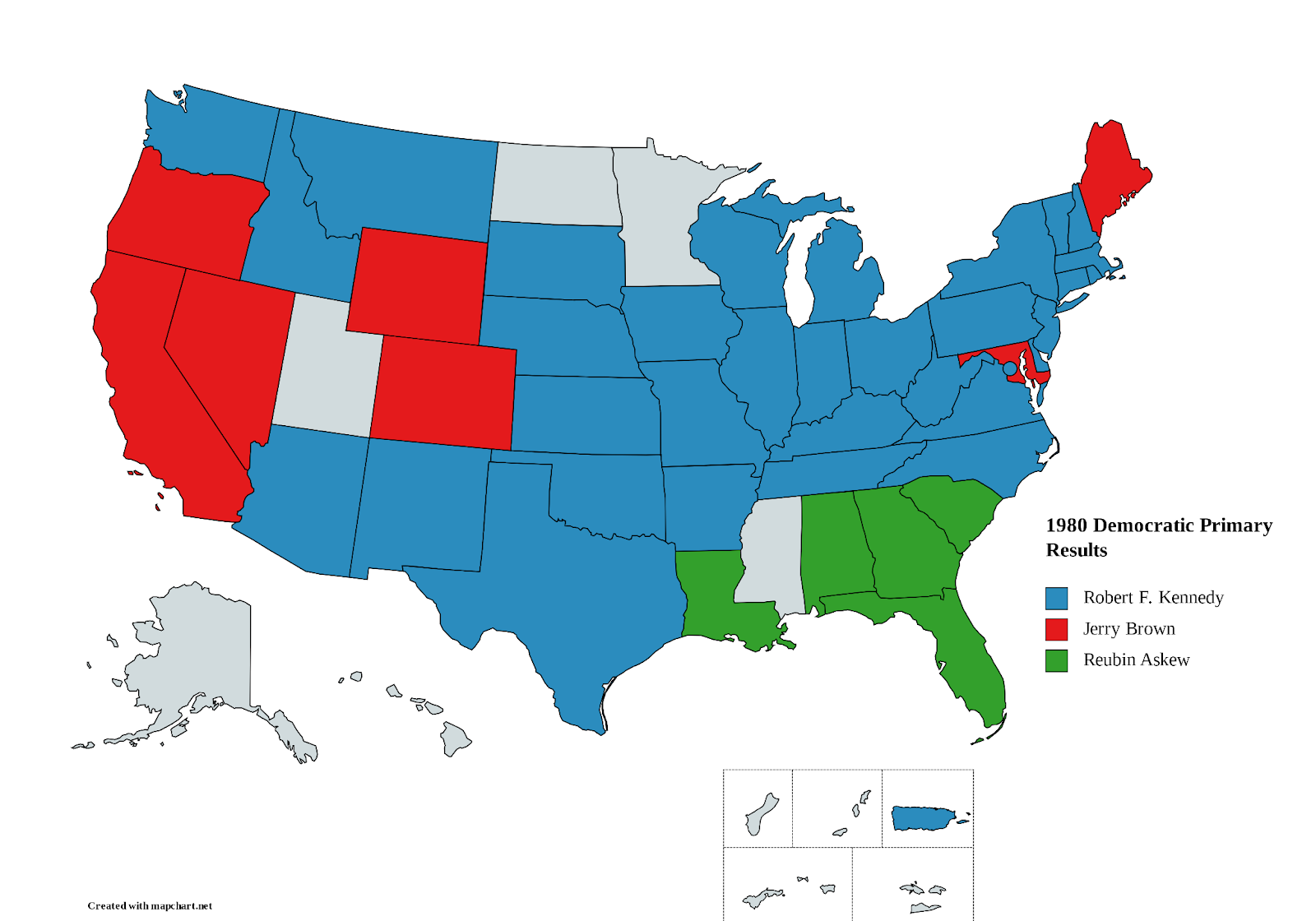
1980 Primary results
At the convention social liberals concerned by Kennedy’s opposition to abortion and gay rights sought a replacement for Kennedy. However, their attempt failed and Kennedy was nominated overwhelmingly on the first ballot.
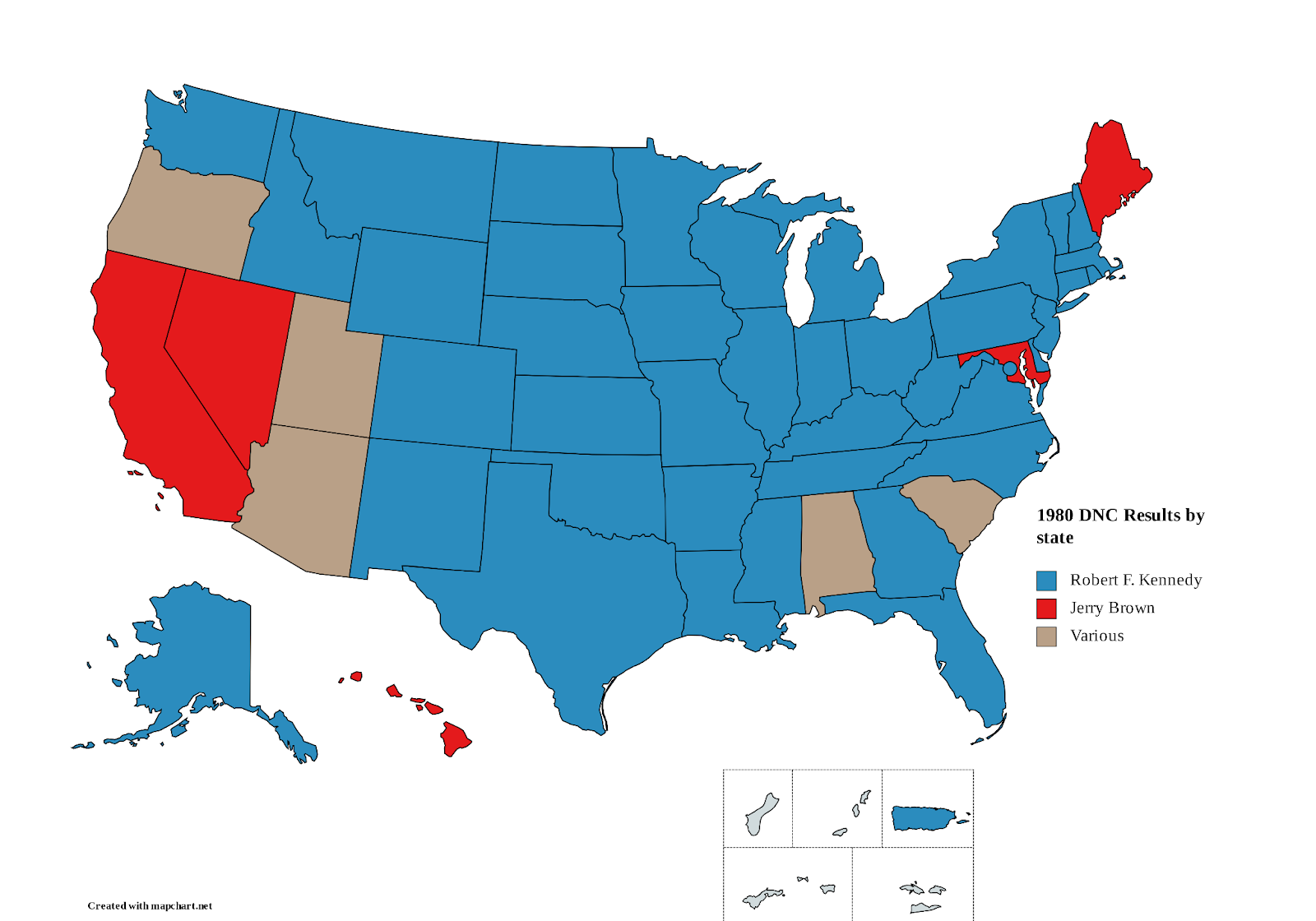
1980 DNC Results
To balance the ticket both regionally and Ideologically Kennedy chose George Senator Jimmy Carter to be his running mate.
While many liberals were upset by Kennedy’s seemingly strong social conservatism (mostly his stances on abortion and gay rights). The DNC ignored Kennedy’s rougher edges in favor of the polling that showed him defeating Ford (surprising to some considering his obvious ties to his brother).
Things got even worse for the sinking Republican ticket when North Carolina Senator and arch-conservative Jesse Helms stagged a walkout among conservative Republicans at the RNC following the easy renomination of President Ford. Helms announced his intention to run as an independent with Congressman Guy Vander Jagt as his running mate.
Kennedy largely ignored the third party ticket instead focusing on his main opponent Ford whom he repeatedly hit with the worsening inflation, deep recession, and poor handling of the Iran-Hostage Crisis. While Ford tried to trade blows back it only led to Kennedy coming out on top each time.
Kennedy campaigned in the Northeast and the Mid West largely leaving the South to his running mate (Carter’s job was to try and keep as many Southern states as he could to vote Democratic). While surrogates such as Governor Brown campaigned in the Pacific.
As election day neared closer and closer it seemed that time did indeed heal all wounds as the public voted for their second Kennedy. Perhaps he would be better than his brother? The public hoped and thought.
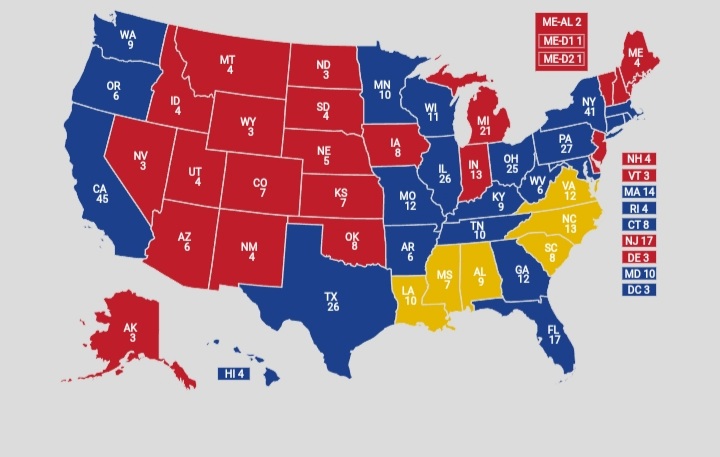
1980 Election
FBI Director Robert F. Kennedy(D-MA)/Sen. Jimmy Carter(D-GA)-341 Electoral votes
Pres. Gerald R. Ford(R-MI)/Vice Pres. George H.W. Bush(R-TX)-138 Electoral votes
Sen. Jesse Helms(IND-NC)/Rep. Guy Vander Jagt(IND-MI)-59 Electoral votes
On January 20th, 1981 just 20 years following his brother’s inauguration Robert Francis Kennedy became the 40th President of the United States.
Kennedy quickly got to work. Working with Congress he crafted a massive 358 million dollar stimulus bill which passed easily. Kennedy got his first Supreme Court nomination when Ed Muskie retired in 1981. Kennedy’s first and only choice was former Secretary of the Interior under his brother Stewart Udall, Udall easily breezed through the process and was confirmed.
Kennedy also signed the Personal Responsibility and Work Act of 1981 which replaced Aid to Families with Dependent Children (AFDC) with the Temporary Assistance for Needy Families (TANF) program much to the chagrin of the more liberal members of Congress (including his younger brother Teddy).
Kennedy also passed a middle and lower-class tax cut. Of course, the biggest achievement for Kennedy was the Health Insurance Portability and Accountability Act (HIPAA) or Kennedycare as some liked to call it.
The bill prohibited healthcare providers and businesses called covered entities from disclosing protected information to anyone other than a patient and the patient's authorized representatives without their consent. The bill also protected health insurance coverage for workers and their families when they change or lose their jobs. And introduced two new major Federal healthcare insurance programs, Part C of Medicare and the State Children's Health Insurance Program, or SCHIP{1}.
The law was signed into law in March of 1982. In 1983 Kennedy got to appoint his second and final justice to the court when Bryon White stepped down. Of course, Kennedy wanted to replace White with a pro-life Democrat. His first choice was Secretary of State, Sargent Shriver.
Shriver’s nomination caused an uproar from the more liberal pro-choice side of the Democratic party which included New York Senator Elizabeth Holtzman who filibustered Shriver’s nomination until Shriver rescinded. Kennedy reluctantly nominated longtime Congresswoman Shirley Chisholm. Chisholm was easily confirmed to the court in September.
Come 1984 the economy had slowly but surely recovered from the recession and inflation was dealt with. Kennedy and Carter were both easily renominated by the Democrats with little to no challengers, while the Republican side quickly turned into a slugfest.
The two heavy hitters were former Vice President George Bush and Kansas Senator Bob Dole with Congressman Jack Kemp and Senator Howard Baker usually had decent showings coming in second or third. Vice President Bush eventually managed to win out over Senator Dole in what was a contentious primary.
Bush tapped Senator Baker to be his running mate.
Kennedy hit Bush over and over again on his ties to the still deeply unpopular Ford administration painting Bush as an even worse disaster in waiting. Bush of course tried to hit back by attacking Kennedycare only for Kennedy to point out in debates and stump speeches that Ford proposed his own healthcare reform plan when he was President and Bush never said anything. When Bush tried to attack the stimulus passed in early 1981 Kennedy hit back painting Bush as an elitist who didn’t care that the average American was suffering.
With the economy doing well and recovering Kennedy was reelected over Bush.
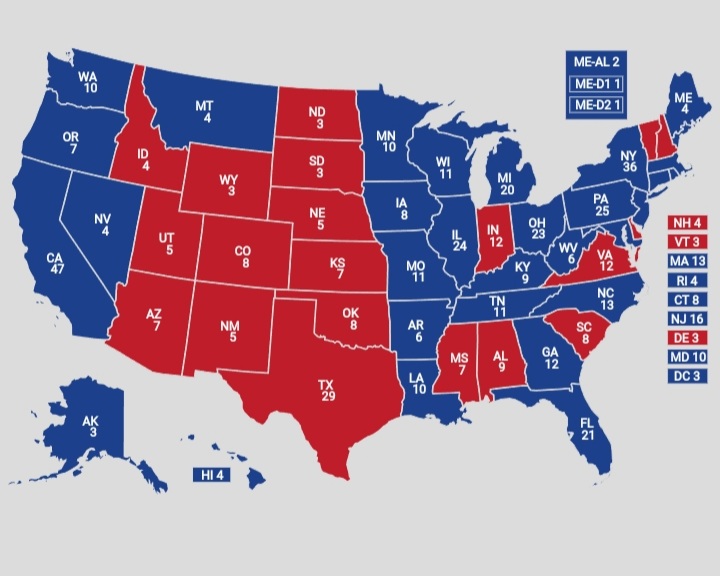
1984 Election
Pres. Robert F. Kennedy(D-MA)/Vice Pres. Jimmy Carter(D-GA)-393 Electoral votes
Fmr. Vice Pres. George H.W. Bush(R-TX)/Sen. Howard Baker(R-TN)-145 Electoral votes
Bobby Kennedy barely lifted his hand off the bible when a border dispute between Argentina and Brazil nearly kicked off a war between the two. Luckily Kennedy stepped in and mediated the dispute to avoid bloodshed.
In March of that same year, Kennedy met with General Secretary Gromyko to negotiate the SALT II treaty which was signed and ratified in the summer. Things were looking quite good for Kennedy…that was until a very dark secret was uncovered.
In February of 1986, a Fairchild C-123 Provider was shot down over Nicaragua. The cargo the plane was carrying was carrying 60 collapsible AK-47 rifles, 50,000 AK-47 rifle cartridges, several dozen RPG-7 grenade launchers, and 150 pairs of jungle boots.

A Fairchild C-123 Provider Circa 1971
The “kicker” Eugene Hasenfus also the only survivor having parachuted to safety was captured by the Nicaraguan government and interrogated. Hasenfus confessed to smuggling weapons into the country and was sentenced to 30 years in prison by a Nicaraguan court. Hasenfus was released at the behest of President Kennedy and others investigating Iran-Contra in exchange for Sandinista soldiers captured by the Contras.
Though there was no direct evidence linking Kennedy to the arms sales it still damaged him. However, the worst was yet to come…
In the spring of that same year, prominent Texax politician Ben Barnes came forward to the New York Times with a bombshell story. Barnes confessed to unwillingly and unknowingly aiding the Kennedy camp in keeping the hostages trapped in Iran so he could win the 1980 election against Gerald Ford.
Barnes told about how in the summer of 1980, he accompanied his mentor and one-time business partner, former Texas governor John Connally(and Secretary of Defense under RFK){2}, on a trip to the Middle East during which Connally asked Arab leaders to communicate to Iranian officials that they should not release the hostages before Election Day and if they waited, Kennedy would offer them a better deal.
Almost immediately Kennedy’s approval ratings plummeted. Connally resigned as soon as the scandal was published. And soon after the floodgates opened and all the skeletons came out.
Stories of Kennedy’s rampant use and abuse of the FBI to spy on political opponents hit the airwaves. Stories of how Kennedy knew of the Northwoods scandal before it even started to come out. Facing impeachment and very likely removal from office Kennedy resigned in disgrace on September 24th, 1986.
Robert is seen as a below-average to awful President by historians. His defenders point out his achievements such as Kennedycare, welfare reform, and the great economy while his detractors point towards the Iran Hostage scandal, his abuse of the FBI to spy on opponents, and the massive damage he did to both the office of President and the country as a whole.
Authors Notes
1. This was a proposal by Bill Clinton in the '90s.
2. John Connally stays a Democrat ITTL.
Share: